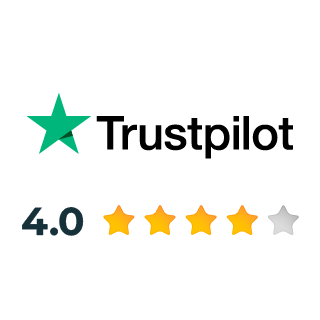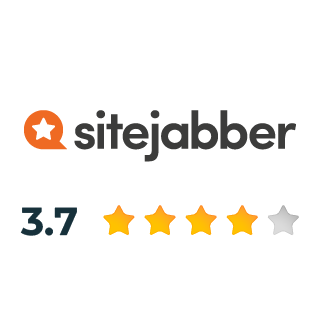To help navigate through these challenging times, here are five tips for adjusting your business strategy in times of crisis.
1. Utilize Digital Marketing for Promotion
 Marketing your business at such a time is essential but challenging. But, during the pandemic, traditional marketing seems like an absolute waste of precious funds. As people stay indoors, there is no point in advertising on billboards. Switch to digital marketing to enhance your exposure, reach more consumers, and optimize the money you spend.
Marketing your business at such a time is essential but challenging. But, during the pandemic, traditional marketing seems like an absolute waste of precious funds. As people stay indoors, there is no point in advertising on billboards. Switch to digital marketing to enhance your exposure, reach more consumers, and optimize the money you spend.
Currently, every consumer has turned to the internet to search for goods and products that they’re in dire need of. This gives companies the perfect opportunity to harness digital marketing in getting their products right in front of prospects and online shoppers. Utilize social media to reach out to customers and target campaigns that speak to their needs and showcase what they’re looking for. It’s important to understand that customers will remember how you responded during the crisis, so make smart moves.
2. Prioritize Inbound Marketing
 Inbound marketing is essentially about attracting the right customers that generate quality leads by carefully directing your messages to the right audience at the right time. Given the world’s circumstances, now would be the best time to make use of this tactic to help businesses connect with their target customers. Marketing is a considerable challenge during these times, especially for small businesses. Still, when you know your potential customers, what they’re looking for, and how they’re going to find you, then it becomes easier to attract prospects to your business.
Inbound marketing is essentially about attracting the right customers that generate quality leads by carefully directing your messages to the right audience at the right time. Given the world’s circumstances, now would be the best time to make use of this tactic to help businesses connect with their target customers. Marketing is a considerable challenge during these times, especially for small businesses. Still, when you know your potential customers, what they’re looking for, and how they’re going to find you, then it becomes easier to attract prospects to your business.
Do thorough research of your target audience and find out what customers search for regularly. Then utilize the right suite of tools to learn whether potential customers can easily find your business online through search engines and whether your web content addresses their needs and questions. For instance, prospects in London looking for professional carpet cleaning will run a search on Google for “carpet cleaning Chelsea.” This will direct them to all the businesses operating in the specified location and enable them to convert to a service-provider that addresses their requirements. Update your SEO practices, social media strategy, and content marketing procedures to elevate the effectiveness of your inbound marketing and drive sales. It will help people find you online and start conversations about your products and services, leading to more conversions.
3. Implement communication strategy for remote teams
Many businesses and corporations have shifted to remote work; they have instructed employees to work from home to limit the spread of coronavirus. While some companies are familiar with operating with remote teams and allow workers to work from home habitually, many have only implemented work from home policies since the crisis. Unsurprisingly, this new work mode can cause some turbulence and will require patience before things start smooth-sailing again, but it’s still better than entirely suspending operations.
Working with remote teams has an unprecedented need for effective communication channels between employers and workers. Business leaders and managers must be able to delegate and assign tasks appropriately and also ensure they can connect any time throughout the day. This requires a modified and upgraded communication strategy that both employers and workers can benefit from and seamlessly communicate while working from home. Employers can list the management tools and applications that teams can install, as well as cloud-based collaboration tools to stay connected with each other.
This type of connection is essential, as no one can accurately say when they will be returning back to the office, so continuing with work in one form or another will be vital to the survival of the business. As such, employers may also make the decision to point their remote workers in the direction of these Cyber Security Threats in 2020, as if they’re working away from the office, they could face a greater threat to their online safety, as well as that of the business’. In the office, you will have access to a specialist IT team who can resolve any internet security problems out for you, so it’s unlikely that you will be able to access the same helplines at home. Doing all you can when it comes to remaining safe whilst online will be important for everyone involved.
4. Revise Your Content Strategy
 Naturally, with COVID-19 disrupting business operations and the economy, there will be an emergence of new data trends and search patterns. Businesses will have to adapt their marketing practices according to the ongoing crisis to effectively deliver valuable content and retain customer engagement. Note down whatever updates and modifications you make to your marketing strategy during the pandemic, as it will be crucial for when your business makes a comeback post-pandemic.
Naturally, with COVID-19 disrupting business operations and the economy, there will be an emergence of new data trends and search patterns. Businesses will have to adapt their marketing practices according to the ongoing crisis to effectively deliver valuable content and retain customer engagement. Note down whatever updates and modifications you make to your marketing strategy during the pandemic, as it will be crucial for when your business makes a comeback post-pandemic.
While you’re implementing new strategies, pay close attention to data analysis reports and measuring the performance of your campaigns. The pandemic has also changed the kind of searches consumers perform on search engines and what they seek. This means business leaders and marketers must track what pages consumers are regularly visiting and what do they most frequently search for. It’s essential to learn which of your marketing efforts are working and which ones require further fine-tuning to show results. Ask these questions. Which social media posts receive the most engagement, and how can you create more? Are you able to reach your local customers? Which of your campaigns has resulted in conversion rates?
5. Empathize and Strategize
Practicing empathy is one of the best ways to build long-term relationships around the time of COVID-19. People are overwhelmed and anxious, especially with more businesses shutting down; they feel afraid to visit physical stores even when wearing N95 masks to protect themselves and others, it’s still such an uncertain time for many. This is where you can offer existing and potential customers some added value by providing free delivery services. Consider going the extra mile to show customers that you are there for them as they are the ones who will help you bounce back in the future. Businesses can reach out to customers digitally to inform them of special offers, package deals, and other perks as a way to lessen the blow of the pandemic. Create a sense of transparency while communicating with your customer base, so they’re aware of the delivery procedure from start to end.
Ultimately, focus on what customers want to see or hear during a time like this. Aim to show them how you can make their life easier, whether it’s by offering products at a discounted price or providing safe and secure delivery services. If your business is targeted towards fulfilling a critical need, then concentrate your marketing efforts to effectively advertise that product.
Wrapping Up
COVID-19 has created distressing heights of panic and uncertainty for businesses and the general public. However, business owners and marketers that respond to the crisis with empathy and resilience are going to be the ones that customers will return to once things go back to normal. As long as we continue to productively utilize tools to collect valuable insights on consumer behavior and their purchasing habits, we can update our business strategies to remain digitally connected with our customer base and continue to urge sales. However, if these methods do not work, due to trying times whether it is during the pandemic or not, then you may want to consider hiring an insolvency practitioner, who will organize the money and assets in your company and also, help you to possibly make that unfortunate decision to sell your business. A practitioner can get you the best possible price for your company so hopefully, in the future, you can rebuild and recreate it again without having to struggle in the present.







































